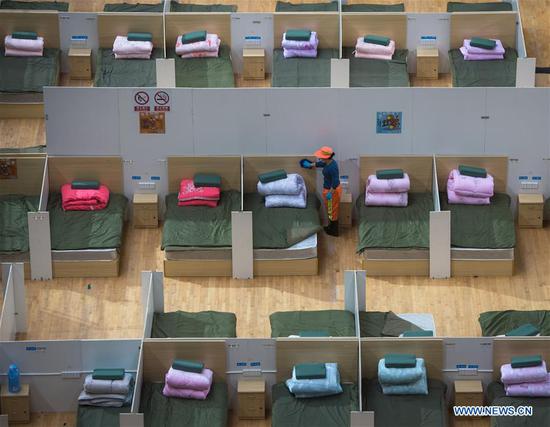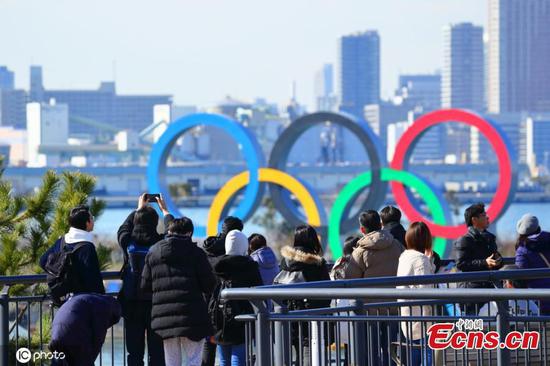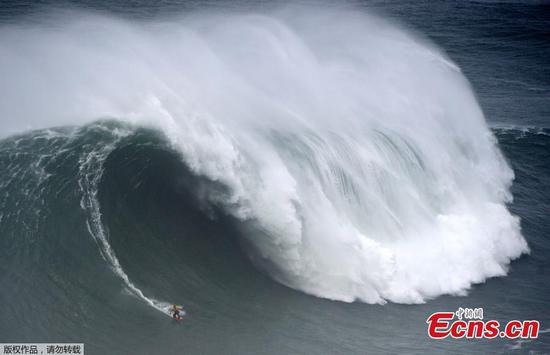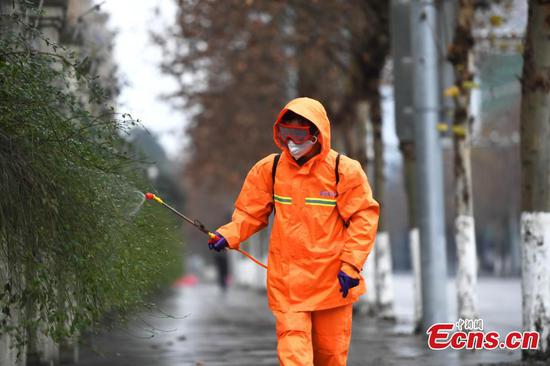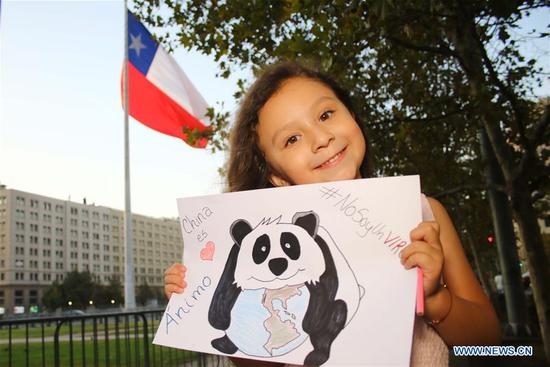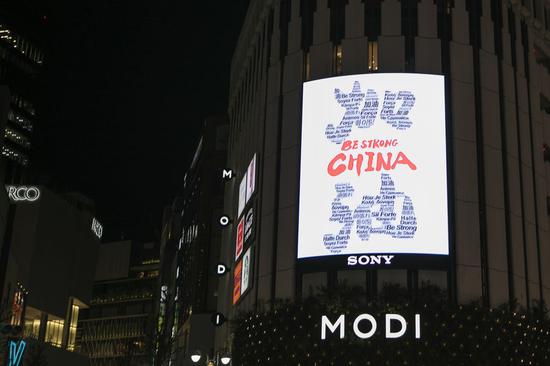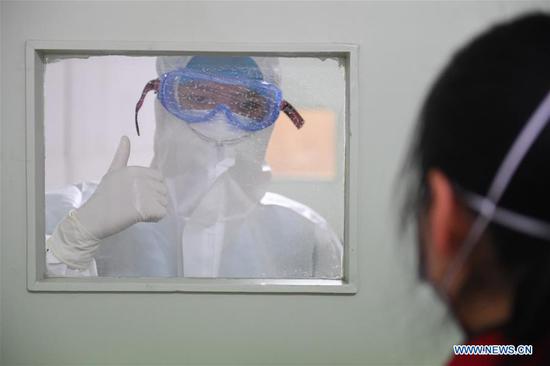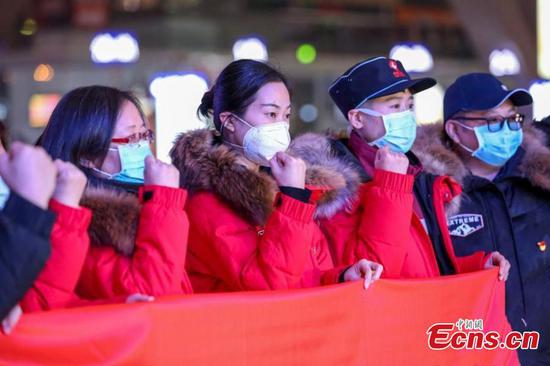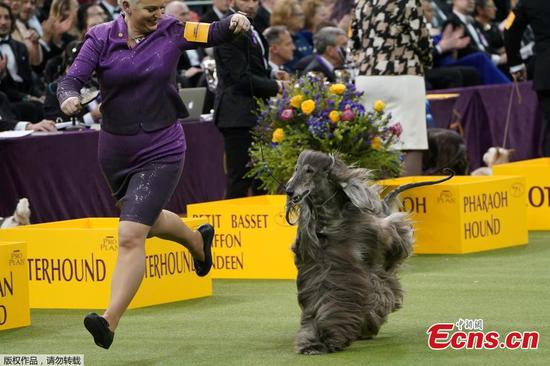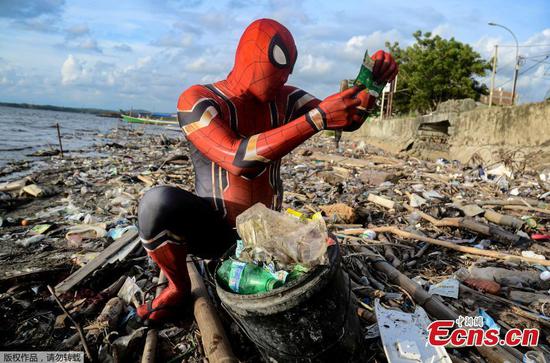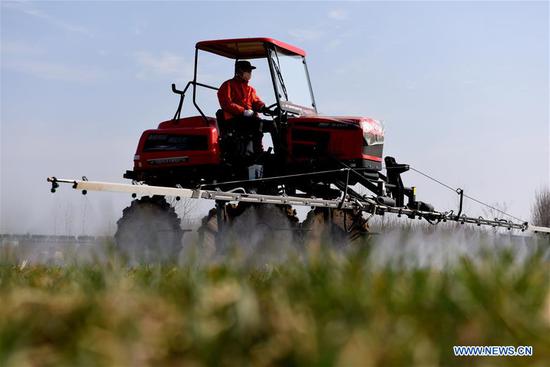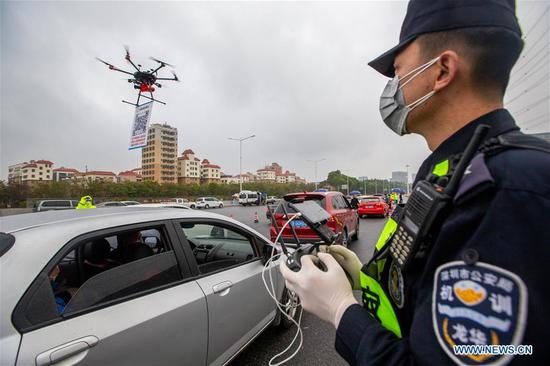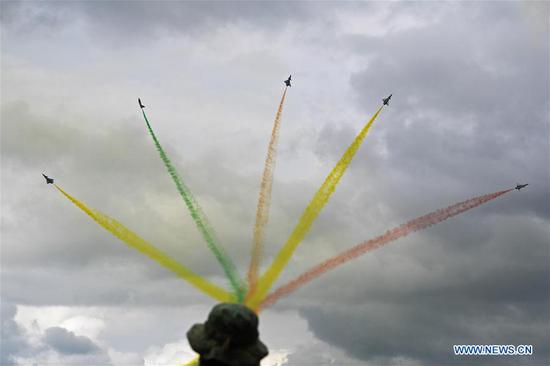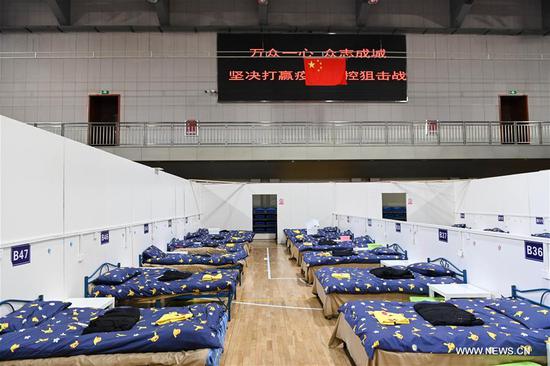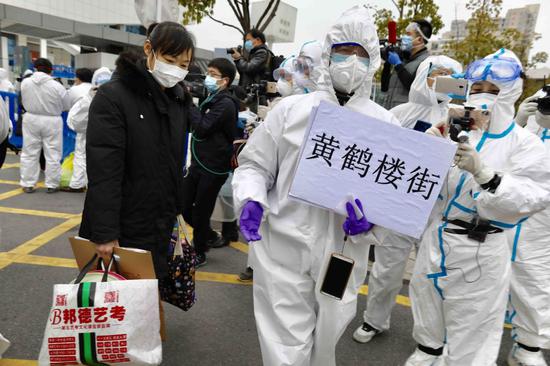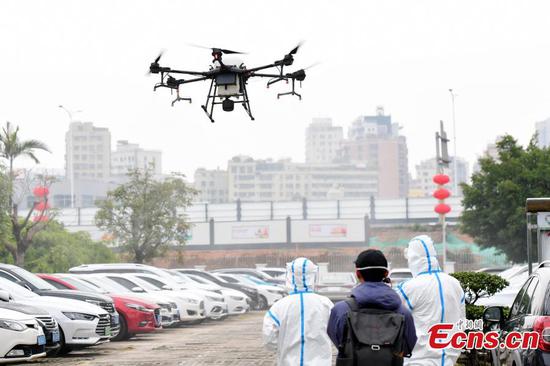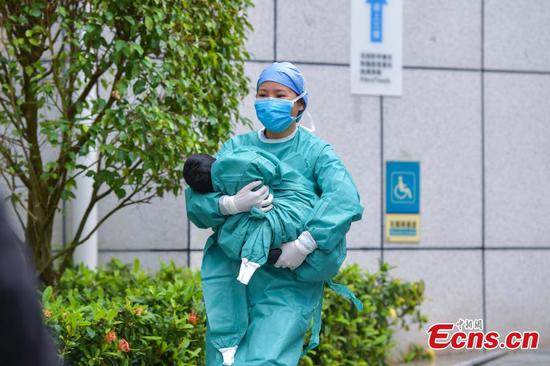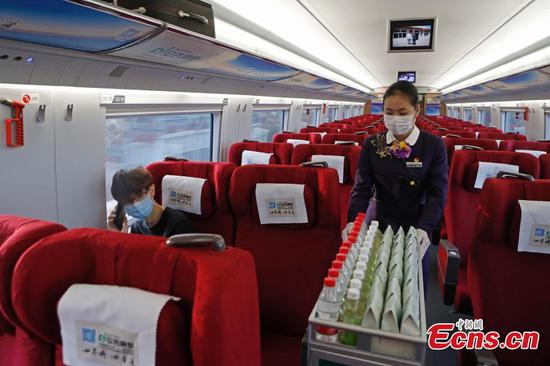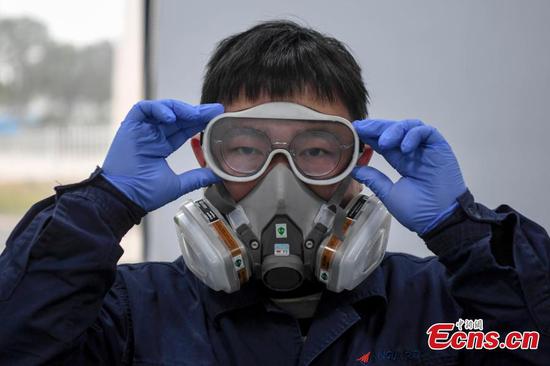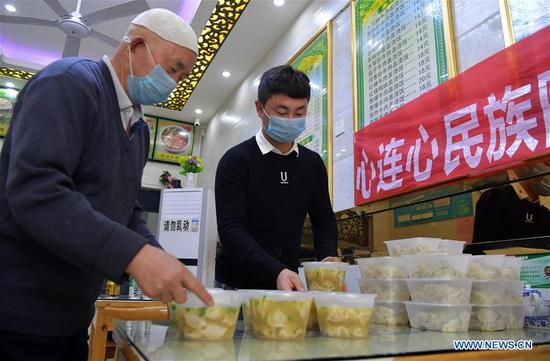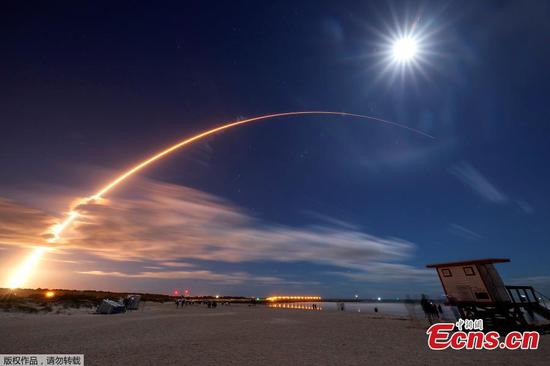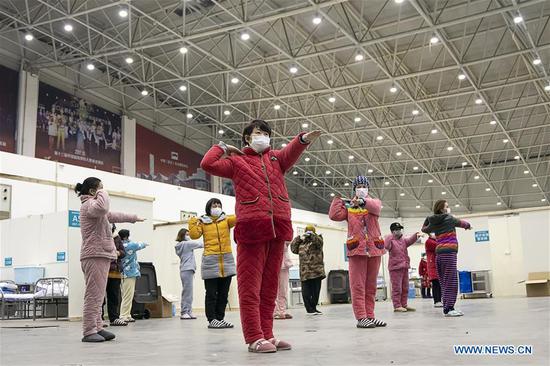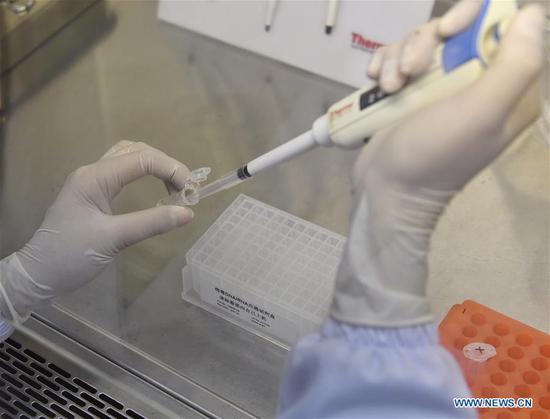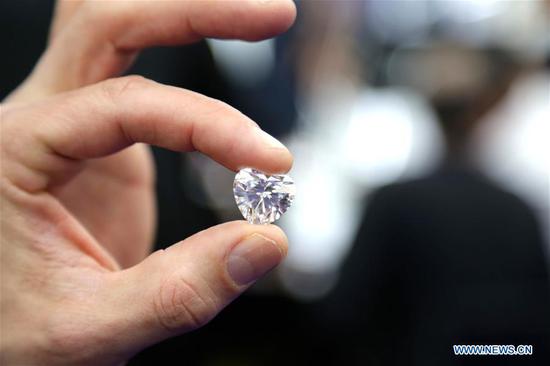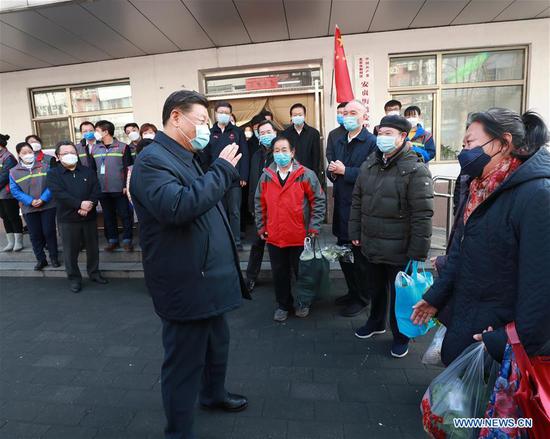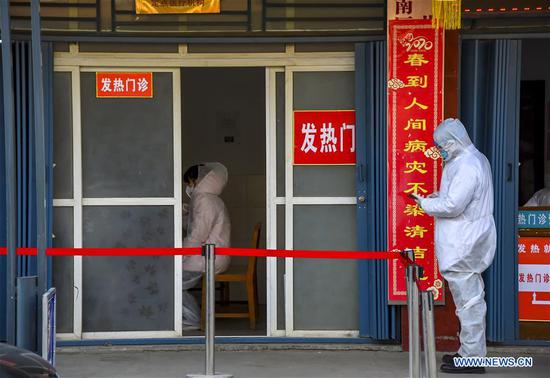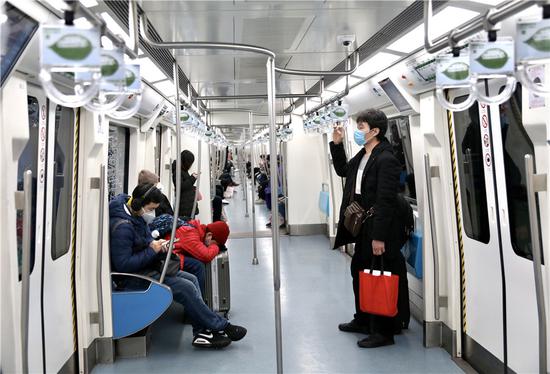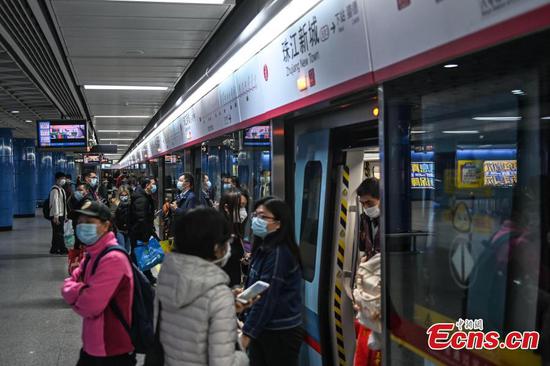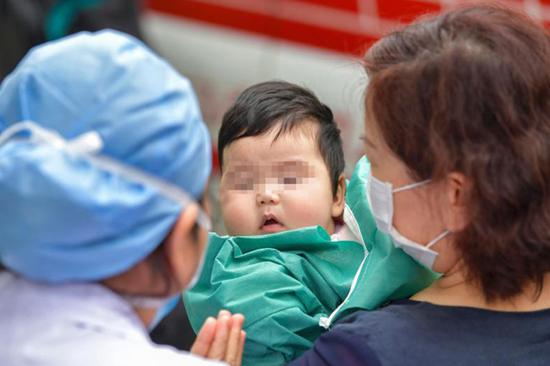
A Japanese girl raised funds for China's fight against the novel coronavirus outbreak on Feb 8 in Tokyo. (XINHUA)
Political solidarity
"It's a test of political solidarity-whether the world can come together to fight a common enemy that does not respect borders or ideologies. It's a test of financial solidarity-whether the world will invest now in fighting this outbreak, or pay more later to deal with its consequences. And it's a test of scientific solidarity-will the world come together to find shared answers to shared problems?"
Universal love is a core concept of Confucianism, something that was evident when Toshihiro Nikai, the secretary-general and a heavyweight of Japan's ruling Liberal Democratic Party, told the media on Monday that all members of his party in the Diet would each donate 5,000 yen ($45) to China.
"It's natural to help a neighboring country if something happens there," Nikai said.
Earlier on Friday, Nikai, 80, at a meeting with China's Ambassador to Japan, Kong Xuanyou, said: "A friend in need is a friend indeed. Japan will stand together with China and will mobilize the entire country to provide support and assistance to help fight the epidemic."
At the same meeting, Tetsuo Saito, the secretary-general of Japan's Komeito Party, said that the enhanced collaboration between Japan and China would help prevent the spread of the virus and overcome it soon.
"While facing the epidemic, the world has shown it is a community with a shared future," said Long Xingchun, a professor at the School of Foreign Languages at China West Normal University.
Long said he appreciated the fact that apart from sending medical materials, Japan used ancient poetry, the cultural connection between China and Japan, to get closer to the Chinese public and to strengthen friendship with China.
Cultural connections
Echoing Long, Hirotake Ran, a professor of East Asian studies at Musashino University in Tokyo, said: "Cultural connections have shown their power in bringing people together in this common fight …It makes people feel compassion and love for all, which is extremely important at a time like this."
Beyond poetry, another cultural connection between China and Japan is calligraphy.
In a video shot at his home, Tomiichi Murayama, 96, a former Japanese prime minister, wrote "Wuhan, jiayou (stay strong)" in Chinese characters and shouted out the message in solidarity with the Chinese.
Inspired by the poetry, Yukio Hatoyama, another former Japanese prime minister, wrote the 1300-year-old saying himself and said in a video expressing his support: "I want to send this message to my friends who are fighting the virus in Wuhan, in Hubei province, and all over China. We are in a community with a shared future for mankind, and I hope everybody can survive these difficult times."
Rebecca Li, a cross-cultural etiquette expert in Beijing, said Japan is the closest country to China in terms of culture. While many countries have offered their support to China, Japan stands out, partly because of the cultural resonance between China and Japan.
"The Chinese feel particularly good when seeing the ancient poetry on the packages of the donations. These poems are all expressions of friendship and goodwill, making people feel that a better Sino-Japanese relationship is assured."









